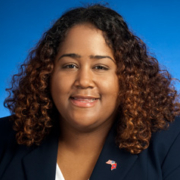Georgia Educational Opportunity Act
2023 Ideas Challenge Entry
Georgia Representative Phil Olaleye introduced HB 668 which aims to update the state’s 30-year-old Quality Basic Education (QBE) funding formula. The bill introduces an “opportunity weight” to allocate additional resources for students in poverty. Georgia is only one of six states that does not allocate specific state funds to help educate students living in poverty. This ensures schools can meet diverse educational needs, from rural transportation to mental health support and urban meal programs. The bill strives to eliminate disparities and enhance education statewide.
Impact
The Georgia Educational Opportunity Act would provide a much needed update to the state’s funding formula and provide additional funding to serve economically disadvantaged students. This would ensure that all students entering a public school in Georgia would receive the resources needed for success, regardless of their zip code and economic situation. For example, schools in rural Georgia might use the funds to transport students to dual enrollment programs or provide Wi-Fi hotspots. Suburban schools might use the funds to enhance mental health counseling and increase after-school tutoring. While urban districts might use the funds to pay for school meal programs and provide critical wraparound services.












